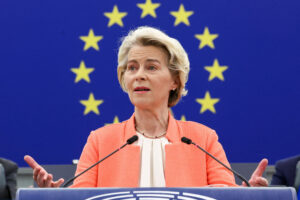“Freedom on the Net 2023: The Repressive Power of Artificial Intelligence”, a new report published by human rights watchdog Freedom House, says global internet freedoms declined for the 13th consecutive year – and that Turkey has become one of the worst countries in the world in terms of internet freedoms.
The report underlined that attacks on free expression grew more common around the world while Artificial Intelligence, AI, has allowed governments to enhance and refine online censorship.
“While an improvement in internet freedom was observed in 20 countries around the world this year, a decline was detected in 29 countries, including Turkey. Unfortunately, there is a contraction in internet freedoms around the world as a result of authoritarian pressure,” Gurkan Ozturan, Media Freedom Rapid Response Coordinator at the European Centre for Press and Media Freedom, one of the authors of the Freedom House report, told BIRN.
Freedom House listed Turkey as “not free” in its internet freedoms index, scoring only 30 points in total out of 100 points.
Ozturan added that Turkey has seen one of the most rapid declines in internet freedoms.
“With a 15-point decline in total since 2014, Turkey stands in third worst place, with Venezuela and Uganda, in hardest declining countries after Myanmar, with 30 points and Russia with 19 points,” Ozturan said.
Ozturan said that key developments in Turkey in 2023 included restrictions and censorship, especially in the aftermath of bombings and earthquakes; disinformation campaigns during the election period, the passing of a Disinformation Law, and revelations of mass surveillance by government bodies.
As the report’s title suggest, AI has become a major concern in internet freedoms, as the government uses it at the expense of internet freedoms.
“We see that Artificial Intelligence technology, which created excitement around the world last year, is used by many governments for mass surveillance and censorship purposes. If no regulation is made in the coming period, it would be surprising if these practices do not lead to an even more oppressive internet management and social life,” Ozturan warned.
Increasing Government Control of Internet in Serbia and Hungary

In addition to Turkey, Hungary and Serbia from Central and Southeastern Europe were also covered by the Freedom House report.
Hungary is listed as “partly free” with 69 points out of 100, but the Hungarian government continues to try to up control of the internet.
“Internet freedom in Hungary remains relatively open, but threats have increased in recent years. Hungary enjoys high levels of overall connectivity and relatively affordable internet access. While there are few overt restrictions on content in Hungary, the government continues to consolidate its control over the telecommunications and media landscape,” the report wrote.
Serbia is listed as “free”, with 71 points – at the edge of free countries in terms of internet freedoms.
“Serbia registered a slight decline in internet freedom during the coverage period. The country features high levels of internet access, limited website blocking and strong constitutional protections for journalists,” the report wrote, but warned about disinformation campaigns and surveillance by the government.
“Pro-government news sites, some of which are connected to the ruling party, engage in disinformation campaigns. The government has reportedly employed trolls on social media to advance its narrative and denigrate critics,” it said.
The surveillance infrastructure poses concerns as well, with research showing that government agencies have used spyware surveillance tools, including Predator. “Journalists continue to face strategic lawsuits against public participation, SLAPPs, concerning ‘insults’ or ‘slander’ against public officials, though detentions and prison sentences in these cases are rare,” the report wrote.
Freedom on the Net project is a collaborative effort between Freedom House and a network of more than 85 researchers, who come from civil society organisations, academia, journalism, and other backgrounds, covering 70 countries.
Source : Balkan Insight















